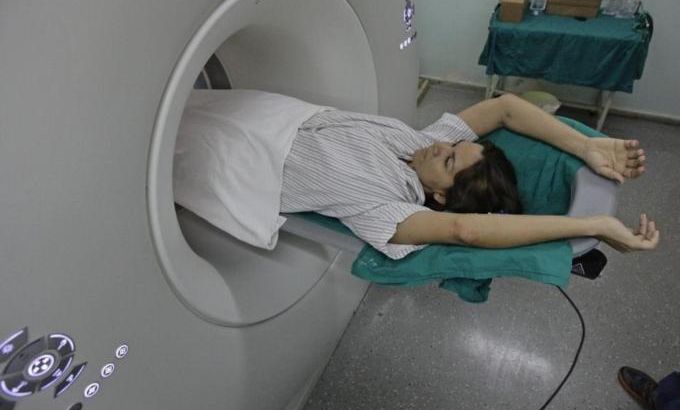
The right to health
Do all human beings deserve universal healthcare?
| No subject is off limits – Redi Tlhabi talks frankly to inspiring and intriguing personalities from across the world. |
This week on South2North Redi looks at how three developing countries are tackling different problems in their healthcare systems.
Professor Joe Veriava from the Wits School of Clinical Medicine, describes the Cuban system as an “interdependent, integrated system of healthcare”. The emphasis on both education (Cuba has a 99 percent of literacy rate), health and political will has resulted in favourable healthcare indicators.
Keep reading
list of 4 itemsUS imposes new sanctions on Iran after attack on Israel
A flash flood and a quiet sale highlight India’s Sikkim’s hydro problems
Why is Germany maintaining economic ties with China?
“The health indices we come across in the healthcare system are excellent. Whether it be the infant mortality rate, which is in fact about 4.8 to the thousand. The doctor-to-patient rate is six doctors per thousand people; that is better than any other country.”
Dr Menabde is the World Health Organisation representative for India and has spent more than 28 years working in public healthcare and infrastructure at both a local and international level. She explains the differences between the rural and urban healthcare systems, and where she believes innovation in healthcare comes from.
“Innovation is a mixture of good governance. It’s a mixture of good will, and indeed more resources and a better educated health workforce which is necessary for delivering those results.”
Redi then brings in Dr Ayanda Ntsaluba, an executive director at Discovery Health South Africa, a successful private health insurance company in South Africa. Ntsabula has experience in the public healthcare system, giving him a unique view into both systems.
The World Health Organisation values the international healthcare industry at around $5.3tn. Redi asks Ntsaluba if private healthcare companies benefit from governments’ inability to provide adequate healthcare.
“I think it’s fair to say, if you look at what has happened over the past 20 years, the South African private industry has developed and grown significantly, and I think it is fair to say some of that growth and success for the private healthcare system generally has been linked to certain shortcomings of public health system.”
The group discusses what can be learned from both the private and public healthcare sectors, as well as the different successes and failures in Cuba, India and South Africa.
Veriava has the final word on Cuba’s unusual but effective healthcare system.
“In Cuba, people live like the poor but they die like the rich. Because a lot of the problems you see among the poor – infectious diseases and all of that, they don’t have that. So they are developing the problems that are common in wealthy countries, such as cardio-vascular disease, such as cancer and all that.”
South2North can be seen each week at the following times GMT: Friday: 1930; Saturday: 1430; Sunday: 0430; Monday: 0830. |
